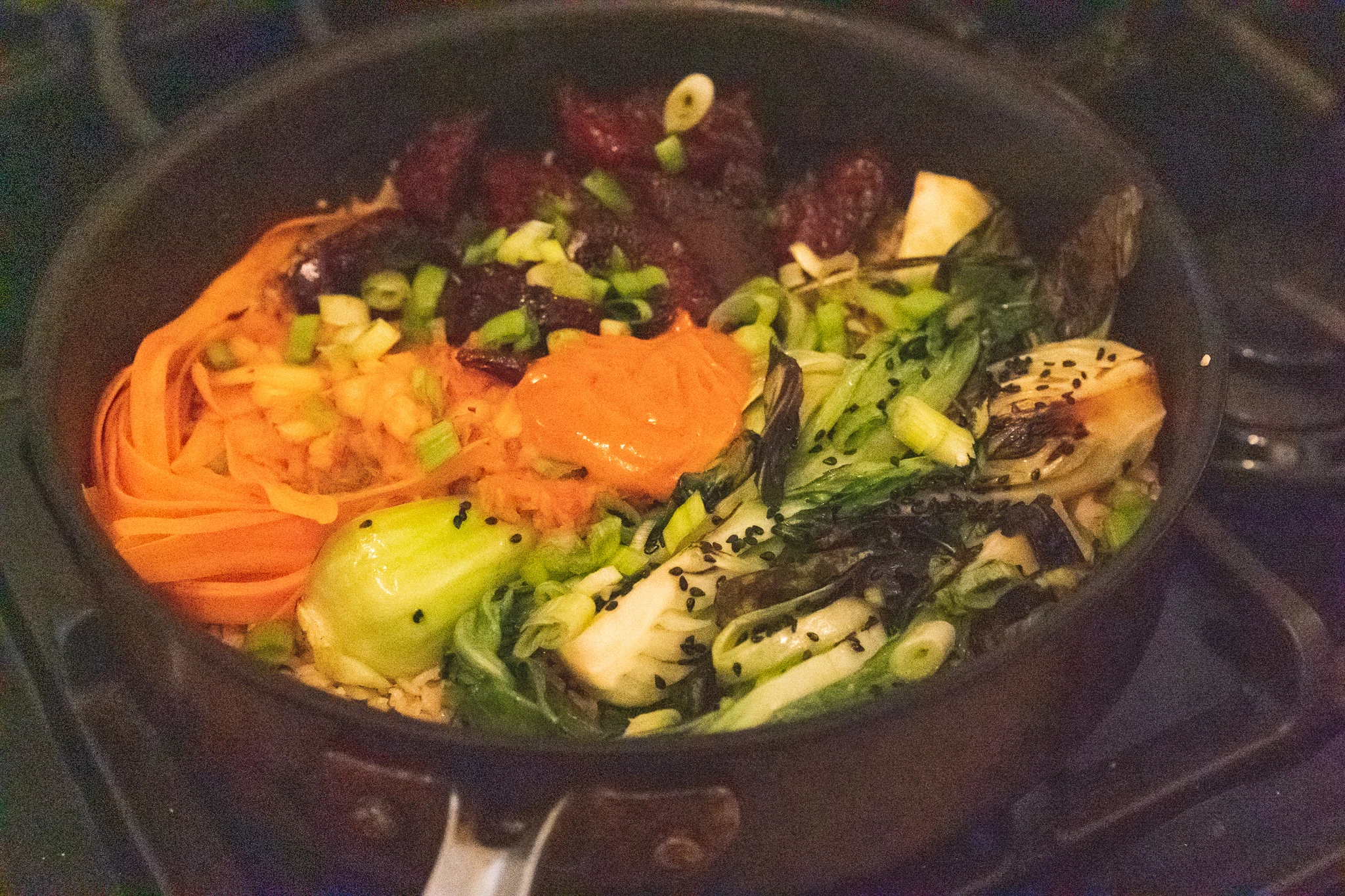There are very few food products out there that are as polarizing as tofu. Some people love it and others hate it vehemently. Among them, the debate over the health risks and benefits rages on. You may disagree with me, but I am a huge fan of tofu. For the love of tofu, read on.
Sue me, I love the stuff, and here’s why:
It is versatile.
Tofu comes in many different varieties: from silken to extra firm. Extra firm tofu has the least amount of water and it is generally used as a main component of a dish. It is sturdy enough to hold up to grilling, skewering, stir frying, dicing, and sautéing. Extra firm tofu can also be crumbled to make scrambles and salads. Silken tofu contains the most water and is (in my home) generally blended into both sweet and savory sauces. In Chinese and Korean cooking, you may also find silken tofu in stir fry and soups, but I prefer to use extra firm tofu for this instead.
It is a sauce master.
Tofu is also a neutral receiver of all kinds of sauce. You can lend any flavor to the tofu. Simple sauces like soy sauce, agave, and vinegar, rich sauces like green curry and coconut milk, and hearty roasted tomato sauces are all delicious with tofu.
It is probably good for you.
I’m ducking from the virtual stones I am seeing hurled my way. The jury may still be out on this issue because the data can be all over the place, but, in general, it is my opinion that tofu can be a healthy part of the human diet.
Tofu is packed full of isoflavones, and there is evidence to suggest that the isoflavones in soy may:
- Reduce the risk of breast cancer
- Reduce the risk of death from breast cancer
- Prevent free radical damage to the liver
- Alleviate hot flashes during menopause
- Reduce LDL cholesterol levels
- Reduce the risk of thyroid cancer
- Alleviate hot flashes during menopause
- Reduce bone loss during menopause
Among many other potential benefits.
But, I thought it mimicked estrogen?
Now, soy does get a bad rap because of the particular isoflavones that are also phytoestrogens. Phytoestrogens are molecules that can bind the estrogen receptor and may turn it on or off. Many worry that the food will have a negative impact on hormone balance.
But here is my question: when is the last time that you questioned how much estrogen was in the meat, eggs, or dairy on your plate? “Endogenous steroid hormones in food of animal origin are unavoidable as they occur naturally in these products.” In other words, you are ingesting full potency estrogens when you eat meat or drink dairy.
A lot of people counter this argument by stating that they use hormone-free meat; while you may be eating no hormone added meats, there is still steroid hormone in the meat or dairy product. Estrogen levels in processed meats may also be associated with declining sperm counts in men.
We spend a lot of time working to avoid endocrine disrupting compounds such as BPA, phytoestrogens, dioxins, and phthalates, but we miss one of the most common sources of sex steroid: meat and dairy. Even worse, animal waste from farming may contribute up to 90% of estrogens in the environment, including the water supply.
Tofu allows you to vote with your fork.
When selecting tofu, I strongly encourage you to choose non-genetically modified versions. You can look for the “non-GMO Project Verified” butterfly or for the organic label. Whenever I select an organic soy product, it makes me feel good to stand opposed to the work of Monsanto and the genetic modification of our food supply.
Also, check out this recipe for Vegan Mushroom Lentil Burgers.





